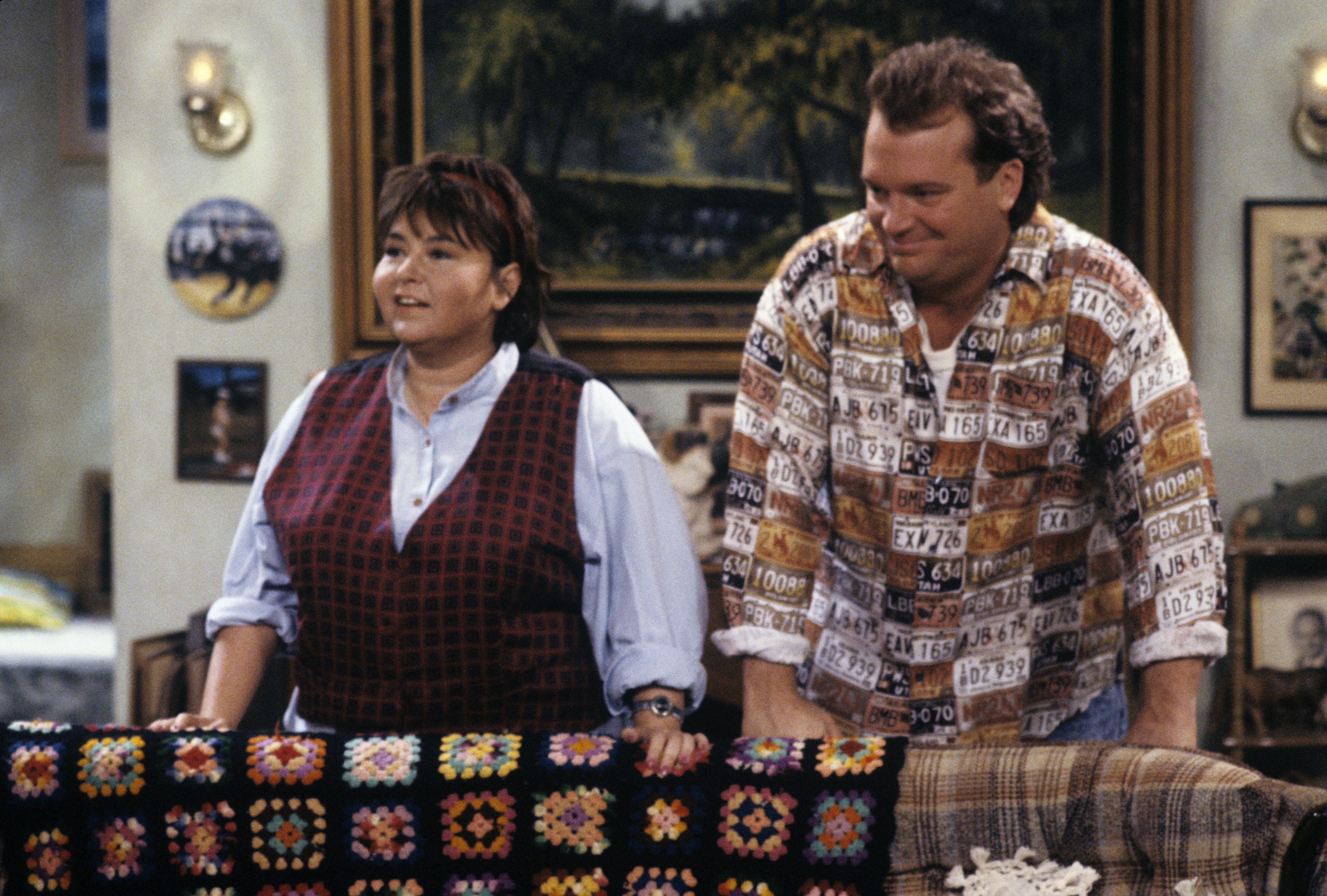
When Roseanne first aired in 1988, it was a game-changer. It wasn’t just another sitcom—it was a groundbreaking portrayal of working-class life in America, offering a perspective that hadn’t been seen before on television. Decades later, the show’s influence can still be felt in the TV landscape, and its enduring popularity proves that Roseanne isn’t just a product of its time—it’s a timeless classic that still resonates with viewers today.
A Bold Departure from Traditional Sitcoms:
In an era dominated by sitcoms featuring affluent families and idealized portrayals of American life, Roseanne stood out by offering a much-needed departure from the norm. The Conner family wasn’t rich—they didn’t live in a house that resembled a magazine spread, and they didn’t have an easy, carefree life. Roseanne, as the matriarch, was a stark contrast to the perfect TV moms of the time. She wasn’t there to offer moral lessons or soothing words. Instead, she was tough, witty, and real.
What made Roseanne so special was its unapologetic portrayal of a family that was just trying to get by. The show depicted the struggles of the working class with an authenticity that resonated with viewers. The Conners weren’t perfect, but they were real—and that made them relatable.
Addressing Unspoken Issues:
What truly set Roseanne apart was its willingness to address the difficult, unspoken issues that most sitcoms of the time avoided. The show tackled topics like mental health, addiction, domestic violence, and LGBTQ+ issues—subjects that were often overlooked or handled in a superficial way on TV. In doing so, Roseanne gave voice to conversations that had long been silenced, making these issues more accessible and less taboo.
For example, Roseanne’s character struggled with body image issues and depression, something rarely portrayed in the media at the time. The show’s depiction of these challenges helped reduce stigma and created a space for these conversations to happen in mainstream media.
Why It Still Holds Up Today:
Even decades after its original run, Roseanne still holds up. The show’s humor, despite being deeply rooted in the 80s and 90s, remains fresh and relatable to today’s audience. The Conner family’s struggles—financial hardship, raising teenagers, marital conflict—are just as relevant now as they were back then. The show’s honest, no-holds-barred approach to family life continues to resonate with viewers who appreciate its raw, unfiltered perspective.
Conclusion:
Roseanne didn’t just change TV—it revolutionized it. The show brought working-class America to the forefront and gave it a voice that had been sorely lacking on television. Through its humor, heart, and unflinching realism, Roseanne became one of the most influential sitcoms of all time. It’s a show that still holds up today because it’s a reflection of real life. And for that reason, Roseanne’s legacy will continue to live on for generations to come.
